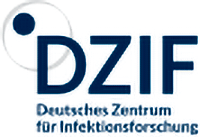The Search for New Treatments Against Filariasis
For over 20 years, scientists at the IMMIP, together with their collaboration partners at the Kumasi Centre for Collaborative Research in Ghana (KCCR), have worked together to develop new treatments for river blindness, also known as onchocerciasis, and lymphatic filariasis; two diseases caused by filarial worms that are major causes of disability in low-/middle-income countries.
Prof. Achim Hoerauf (Director IMMIP), Prof. Alexander Debrah and Dr. Linda Debrah (KCCR/ KNUST), together with other scientists from Bonn: Dr. Ute Klarmann-Schulz and Dr. Kenneth Pfarr have been collaborating with KCCR in clinical trials to fight river blindness and lymphatic filariasis.
The Search for New Treatments Against Filariasis
For over 20 years, scientists at the IMMIP, together with their collaboration partners at the Kumasi Centre for Collaborative Research in Ghana (KCCR), have worked together to develop new treatments for river blindness, also known as onchocerciasis, and lymphatic filariasis; two diseases caused by filarial worms that are major causes of disability in low-/middle-income countries.
Prof. Achim Hoerauf (Director IMMIP), Prof. Alexander Debrah and Dr. Linda Debrah (KCCR/ KNUST), together with other scientists from Bonn: Dr. Ute Klarmann-Schulz and Dr. Kenneth Pfarr have been collaborating with KCCR in clinical trials to fight river blindness and lymphatic filariasis.
Development of the antibiotic Corallopyronin A against filariasis
More than 72 million people in the tropics are infected with the nematodes Onchocerca volvulus, Wuchereria bancrofti and Brugia malayi. Infections with these worms can lead to severe dermatitis and blindness or elephantiasis - a disease in which the legs in particular become extremely enlarged. In dogs, a similar parasite can cause life-threatening canine heartworm disease. With the natural compound Corallopyronin A, Prof. Achim Hörauf and his team ... Continue reading...
Code for a Cure: Combating River Blindness with Data & AI
A team of experts at Capgemini, in collaboration with University Hospital Bonn and Amazon Web Services, has developed an artificial intelligence (AI) model that will accelerate the speed of clinical trials aiming to establish new treatments for River Blindness, a neglected tropical disease which affects over 20 million people globally. Currently, the specialist work of clinical trials can only be carried out manually by a handful of global experts, so the winning model could save years of work and speed up the development of new treatments.Continue reading


